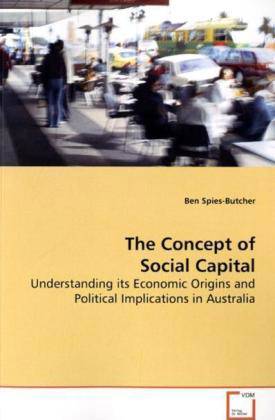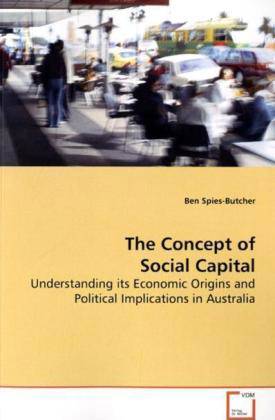
- Afhalen na 1 uur in een winkel met voorraad
- Gratis thuislevering in België vanaf € 30
- Ruim aanbod met 7 miljoen producten
- Afhalen na 1 uur in een winkel met voorraad
- Gratis thuislevering in België vanaf € 30
- Ruim aanbod met 7 miljoen producten
Zoeken
Omschrijving
The concept of social capital has been widely embraced by academics, activists and governments. It promises a language to unite economics and sociology, and a resource that will help explain poverty, social exclusion and civic distrust. Yet some suspect a sinister process of colonisation, where the methods and ideology of market economics are imposed upon the broader social sciences. This book argues the concept's origins lie within the rational choice tradition, but makes a distinction between the methodological and ideological development of the concept. While social capital theory may present an opportunity for social theorists to engage with and learn from economists, the development of the concept also suggests political commitments to individualism and a suspicion of the state that may cause progressive theorists to pause for thought. Looking to contemporary Australian politics, this book argues that these same dynamics help us understand the evolving debates around the impact of the market on community, from economic rationalism and community development to the recent Third Way debate.
Specificaties
Betrokkenen
- Auteur(s):
- Uitgeverij:
Inhoud
- Aantal bladzijden:
- 280
- Taal:
- Engels
Eigenschappen
- Productcode (EAN):
- 9783639129182
- Verschijningsdatum:
- 13/03/2009
- Uitvoering:
- Paperback
- Formaat:
- Trade paperback (VS)
- Afmetingen:
- 152 mm x 229 mm
- Gewicht:
- 412 g

Alleen bij Standaard Boekhandel
+ 155 punten op je klantenkaart van Standaard Boekhandel
Beoordelingen
We publiceren alleen reviews die voldoen aan de voorwaarden voor reviews. Bekijk onze voorwaarden voor reviews.











